The defense of the railway station in Brest
Brest itself, Soviet troops left almost without a fight. The Germans occupied the city already in the first hours of the invasion at 7 a.m. on June 22. The units of the 28th Rifle Corps located around the city (6th and 42nd Rifle Divisions), taken by surprise, could not provide serious resistance and retreated to the east. In the same direction the heavily battered 22nd day rolled back tank division. The location of this division was extremely unsuccessful, very close to the border. The Germans inflicted serious losses on the divisions even when the equipment was advanced from the parks with ordinary artillery fire, which they could easily correct. Very soon, the only centers of defense in the Brest region were the Brest Fortress, in which units of the 6th and 42nd Rifle Divisions and other Soviet units that had not had time to leave it, and a small group of defenders of the Brest Railway Station who were aware of the feat and much less is said.
Invasion
On that damned night of 22 on June 1941, 30 officers of the line police were in the service. That night, Private AV Kulesha also took over duty, who remembered those alarming hours so much: “I myself lived in the village of Plosk, therefore I left the house on duty ahead of time. He walked with his brother Michael slowly, driving a bicycle. On the way, I noticed that at the corner of Krasnogvardeiskaya and Fortechnaya streets, a man in civilian clothes was cutting wires on poles. At the same time, there were three more people standing near the post, also in civilian and were talking to him.
My brother and I thought their actions were suspicious, but, on reflection, we decided that repair work was being carried out on site. The same thing was said to me in the police room on duty at the station when I told about what I had seen. In this case, I did not have time to begin my duty, as the lights went out in Brest. Then he lit up again, and then the lights flashed again. Already on duty, a group of border guards approached me, there was a 30 man in it, they ordered me to send them on a service train to Vysokoye and showed me the documents. Something in their behavior seemed to me suspicious. I quietly followed them and heard the German language. After that, I ran to the attendant and reported what I had seen, to which he again waved his hand, saying that everything seems to me today. And the border guards sent.
It has so far been only flowers. At two o'clock in the morning, the head of the linear police department of the Brest-Litovsk railway was called from the operative police station at Ivatsevichi station. The caller reported that, in the area of Bereza-Kartuzskaya station, an unidentified plane fired at a passenger train that was heading to Brest from Moscow. It was reported that among the passengers of the train there are victims. Another alarm bell sounded from the station Zhabinka. The deputy for operational work reported that the connection with Brest was interrupted, the telegraph and telephone did not work. As it is now known, German saboteurs on the eve of the invasion were active at the border, breaking the link.
At the same time, the station in Brest was still calm, and life went on as usual. Passengers waiting for the morning trains, as well as several groups of seconded military, had already gathered on the platform. So at the station turned out to be a group of telecommunications operators from the 74 th aviation regiment, commanded by Sergeant Major Basnev. The group was going to go to Pruzhany for replenishment. In addition to them, the soldiers of the 291-th separate anti-aircraft artillery battalion turned out to be at the Brest station, carrying a batch of boots to their unit, they were waiting for the train to Vysokoye. Also at the station were the Red Army 66-th fortified area, led by political advisor F. L. Zazirin and a team of pilots of the Borisov flight school.
Since it was possible to leave for Pruzhany only by train at 6 in the morning hours, the military commandant of the station ordered the foreman and his soldiers to spend the night right at the station. Before that, they had walked around the city and had time to watch a film in the station’s agitation center, and then stayed overnight in the station’s waiting room. Here with them also anti-aircraft gunners settled down to rest.
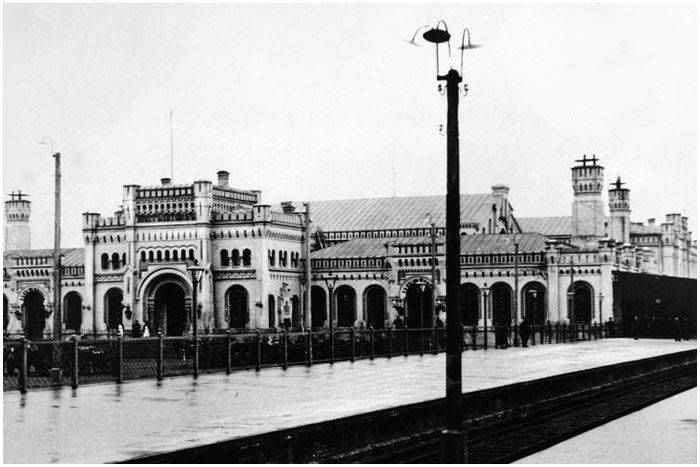
In the twilight of the coming dawn on the morning of June 22, 1941, they were all awakened by close blasts. Having run out on the station square, foreman Basnev and his companions immediately saw a huge glow in the side of the border and pillars of shell explosions, which continually rose on the railway tracks near the station. Someone almost immediately started a rumor about the beginning of the teachings of the Western Special Military District, but the shells were torn so close and fell on the city itself, that everyone understood, the war began. The barracks of the Northern military town were burning, and the sky just burned over the Brest Fortress.
It is rather difficult to say exactly what exactly happened at the train station in Brest in the following hours and days of June 1941 of the year, as the participants of those events are few in number, and their memories sometimes contradicted each other. Thus, the aforementioned police officer A. V. Kulesha talked about the last train with refugees from Brest, which by order of the head of the linear police department Vorobyov managed to be sent from the burning city to the east. At the same time, according to the testimony of the station's on-duty dispatcher A. P. Shikhov, only one locomotive with two arrows was sent to check the condition of the way to Zhabinka. The locomotive was sent by order of the head of the railway department L. D. Yelin.
Defense station
The first thing that the military who found themselves at the station needed to think about was the ammunition. Many rode with their rifles, but they had little ammunition. Basnev rushed back to the station building and sought out the military commandant. Fortunately, there was a small warehouse at the Brest station weapons and ammunition railway guards. Thanks to him, after half an hour, fulfilling the order of the commandant, a small detachment of foremen and several other groups of soldiers in full combat readiness with weapons and ammunition took up defensive positions on the western approaches to the station in order to cover the departure of trains to the east.
At the same time, the train station was filled with people. Locals fled here from the city, as well as families of the military, who expected to leave by train in the direction of Minsk. However, the German shells continually exploded on the tracks, only 2-3 short trains were able to send to the east (information about the trains sent from Brest is very contradictory), which only a small part of passengers could leave, and new ones arrived.
Gradually, the sounds of a shootout approached the station building. And then a group of border guards appeared at the station square, which retreated here from the railway bridge on the border. This group joined Basnev and his comrades. Following them from the road that led to the station, there was a crash of working engines and machine-gun fire resounded. Then, for the first time, the Red Army saw their opponents. Approximately 20 of German motorcycles with wheelchairs drove to the station, while German machine-gunners sometimes shot, most likely, more to the point. The appeared motorcyclists were let up almost closely, after which they were greeted with a friendly salvo. The enemy's column slowed down sharply, and the motorcycles began to slide into the ditch, trying to turn around and get out of the fire. Hardly half of them could rush back.
A small victory inspired the defenders, but they rejoiced prematurely. In less than an hour, the rumble of engines came again from the road, but this time it was German armored personnel carriers with soldiers. In this case, the forces were unequal, the soldiers armed only with rifles could not fight for a long time against the enemy's armored vehicles. They had to retreat to the station building itself and try to shoot from its windows.
After sufficiently stubborn fighting in the station building itself, the police and the Red Army had only to retreat to the basements, in which by 8: 00 - 8: 30 there were already enough soldiers and civilians. By 10 hours of the morning, the Germans completely occupied the station building itself. But under the station building there was a rather large network of basements. The “Station Dungeon” was a very tangled maze of rooms, the total area of which exceeded 1000 square meters. The cellars were located on three sides of the building of the Brest railway station: from Graevskaya, the eastern and Moscow. At the same time, there was no basement under the central hall of the station. The basements were divided into compartments with strong concrete partitions. It was here into these dark or dimly lit rooms, if they had small windows facing the ground, a large crowd of civilians rushed. Here, crammed by the Germans, the military were forced to retreat. At the same time, they continued firing at the enemy from the basement windows.
The Germans attempted to rush into the basements through the door that led there from the station restaurant, but as soon as the officer and the group of soldiers opened the door and went down a few steps, shots rang out of the dark corridors. The officer and one soldier were killed, and the rest retreated. 22 June the Germans no longer tried to go down to the basement. Several times, using loudspeakers, they appealed to the defenders to lay down their arms.
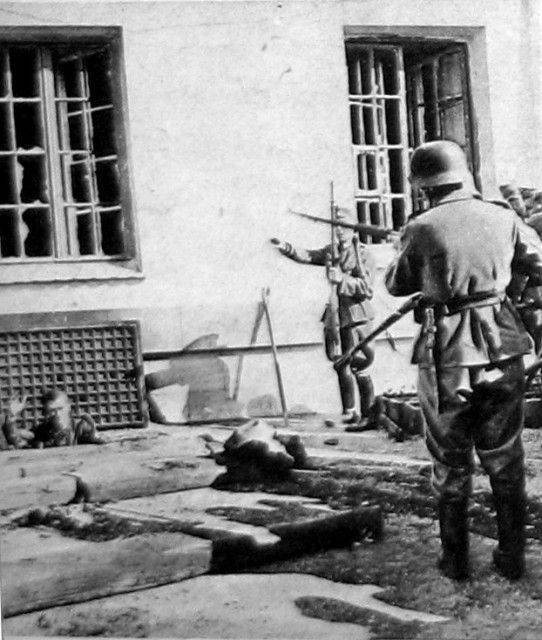
The situation in the basement itself became critical. Hundreds of people gathered there, including children, women, old people. They did not have sufficient food, water or medicine. The children cried, the women sometimes fought hysterically, the depressed and confused men did not know what to do. Only a handful of military and policemen with rifles and grenades, every now and then fired from the windows, without hesitation performing their duty and the current combat mission. The cellars of the Brest railway station became the frontier of defense where they were ready to fight to the death.
At the same time, the civilian population made the situation in the basements extremely nervous and unwittingly oppressed the defenders. Sometimes German soldiers managed to get close to the windows and they threw grenades into the basement, then into one, then into another room. Often they were torn among civilians, they killed, wounded and maimed women and children. Moreover, with each explosion there was an unnecessary panic, and the military with great difficulty managed to restore order. There was nothing to feed these hundreds of people either. The buffet located at the station was half-taken away until it was taken under protection. But those products that were, would not be enough for everyone and for the day. Therefore, by the morning of June 23, all civilians had left the basement. Under the station, only 50 to 100 defenders are left with weapons in their hands.
It is worth noting another important detail. On the east side through the basement was the main wall, which divided them into two parts. A smaller part of the basements on the Graev side in the pre-war years was used for maintenance, there was a boiler room. On the Moscow side, apparently, there were premises that were intended for warehouses. Anyway, this capital wall divided the defenders into two separate units. Judging by the stories of A.P. Shikhov, the Red Army men and railway workers, led by Lieutenant Nikolai Shimchenko and Sergeant Pavel Basnev, found themselves in basements on the Graevsky side. And from the Moscow side there were police officers under the command of A. Ya. Vorobyov.
On the second day of the siege, the Germans decided to use either gas or smoke. They threw the tow in the basement, which was dipped in fuel, the smell of the station defenders was sickening. The soldiers moistened the scarves in the tank for heating and breathed through them. Also, the Germans did not throw attempts to throw grenades at the basement, but the defenders were saved by thick partitions between rooms. On the third or fourth day of the siege, water began to flow into the basement, the Germans simply pulled the hoses to the windows. However, again the defenders were saved by the cellar partitions, although the water poured into the compartments, but slowly, leaving time for salvation. At the same time, the nazis periodically attempted to descend into the basements, but invariably they fired at them. 25 June, according to police, three people from the Vorobyov group were able to leave the basements unnoticed and leave the encirclement.
It was not particularly good for defenders who had been in basements for several days. They sat there almost in complete darkness, sometimes chilled and hungry in the water. But, perhaps, they heard the rumble of battles, which was going to the city from the side of the Brest Fortress and hoped that soon the units of the Red Army would free Brest. However, with each new day, such hope weakened. 26 June the Germans decided to try a new way to smoke defenders. They drove a steam locomotive with a powerful pump and with great force began to pump water into the basements. For two days the water flooded what had not yet been flooded before. During this time, the remnants of food were killed and the last batteries in lanterns sat down. German soldiers threw smoke bombs at the windows. It was clear that the Nazis were determined to end the defenders and take them dead or alive. When the water level in the basements reached a critical level, the defenders understood that they would have to go out.
29 June approximately between 9 and 11 hours of the morning they began to get out under the mounted platform. The first to get Martynenko and Shikhov. They took pieces of bricks and under the guise of workers cleaning the territory tried to get lost in the crowd. But they were discovered. Having struck them with butts, they were led back to the platform, where the rest had already left. There were 27 people in the ranks of the prisoners, including two women - a telephonist Olya Krivtsova and a telegraphist worker Maria Trigger. After four days that they spent in the water, their bodies and hands became dirty and shriveled, only their eyes and teeth were visible. Overgrown and emaciated prisoners, the Germans were sent to the camp of Terespol, where prisoners from the Brest Fortress were kept.
Now it’s impossible to say whether anyone remained in the basements after June 29th. In the early 1950s, during the reconstruction of the station during the dismantling of the chimney and one of the walls, the remains of 4 people were discovered. Some weapons, buttons, aviation emblems. The station basement in Brest and now, after many decades, keeps secrets and secrets that will remind posterity of the exploit of its defenders in June 1941, whose resilience aroused respect even among the Nazis. After the war, the famous German saboteur Otto Skorzeny wrote in his book: “The enemy troops, which were entrenched in the deep basements of the Brest railway station, refused to surrender. As I found out later, I just had to flood the basements, as all other attempts to knock out the Russians from there ended in failure. ”
Unfortunately, today it is not possible to establish all the names of those who died while defending the station in Brest. Among the dead and those who died of wounds were A. D. Golovko, A. Ya. Klimuk, P. I. Dovzhenyuk, I. T. Nazin, L. D. Elin, V. N. Sobolev, G. A. Efremov. Archival documents confirm the death in the German captivity of P. P. Basnev and A. M. Sidorkov. There is information about V.N. Sobolev, who was wounded during the defense of the 22 station on June and at the same time he was sent to the railway hospital with L. D. Yelin. He died on the same day and was buried in a mass grave in the courtyard of the hospital with Elin. Here 7-8 were also buried dead, but to this day their graves have not been preserved. One of the organizers of the defense, A. Ya. Vorobyov, was able to make his way into the city and even got to his family, but one of the townspeople issued it to the Germans. After that, Sparrow was immediately arrested, and then shot.
Information sources:
http://www.istpravda.ru/digest/5954
http://militera.lib.ru/prose/russian/smirnov2/09.html
http://www.1tv.ru/sprojects_utro_video/si33/p77112
http://brestcity.com/blog/brestskij-zheleznodorozhnyj-vokzal
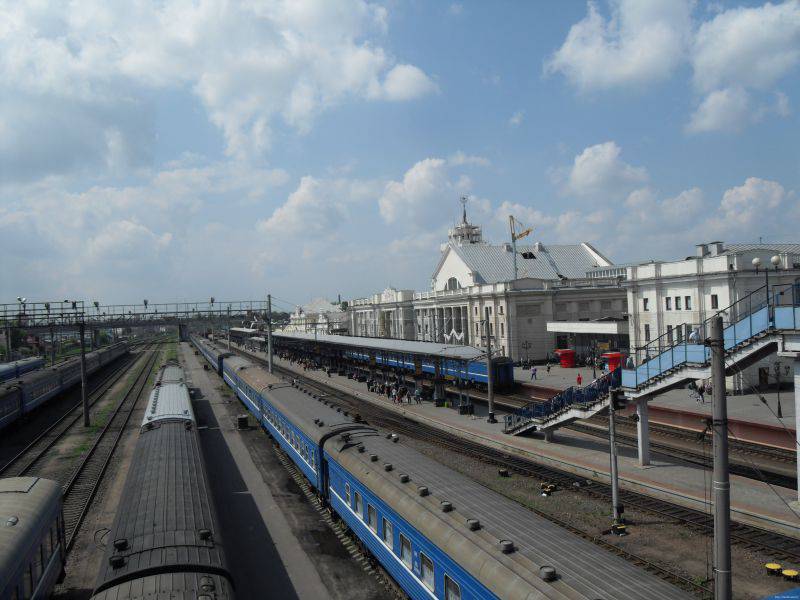
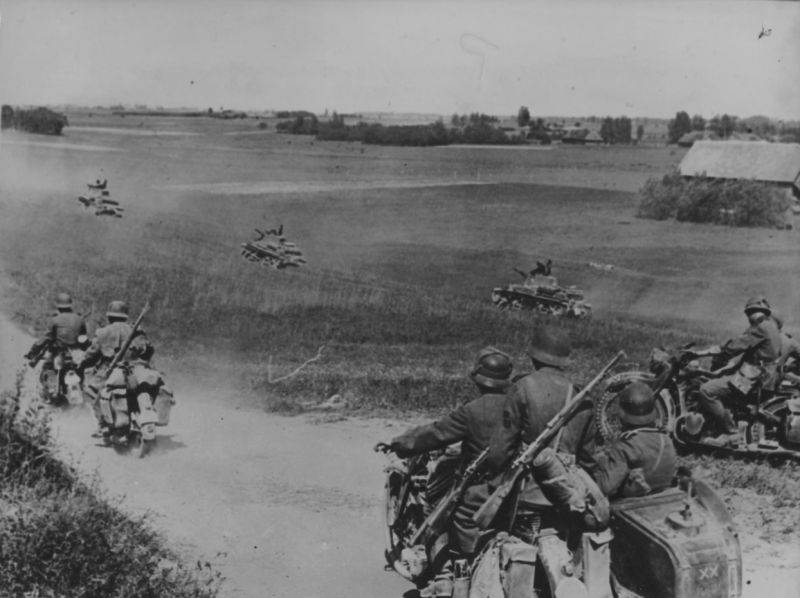
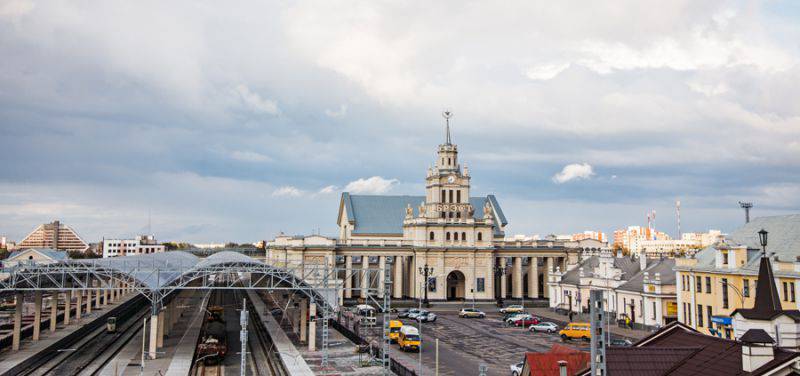
Information